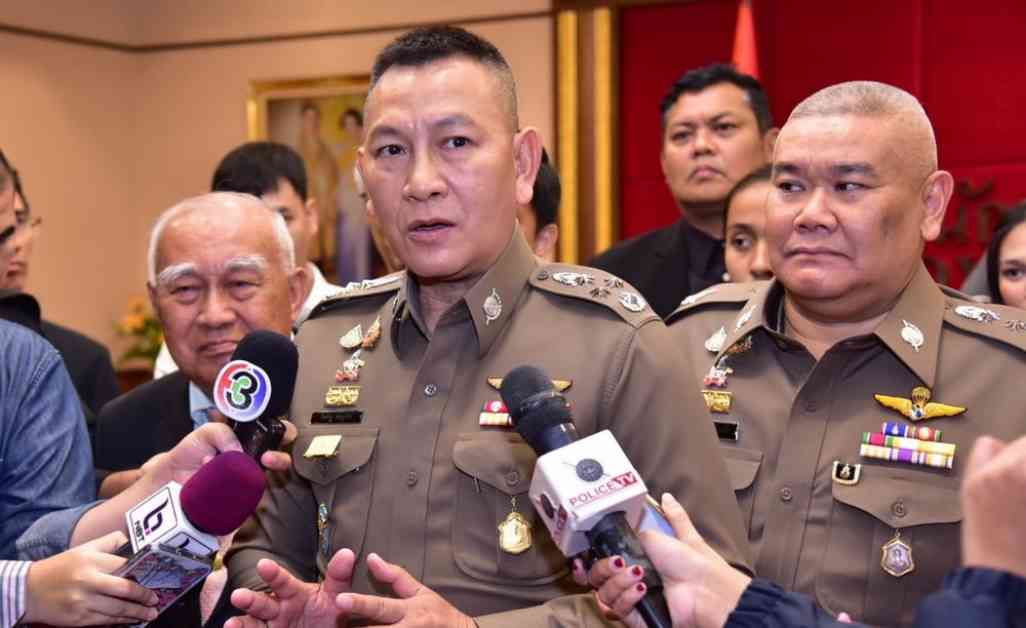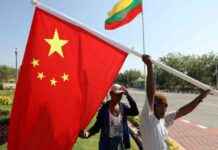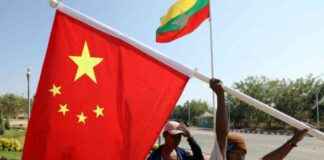Unlikely Nomination for ‘Big Tai’ as Police Chief Despite Being the Most Senior Officer
At the National Police Headquarters on August 16, 2567, Deputy Commissioner General Kittisak Ratphetch, Deputy Commander-in-Chief of the Royal Thai Police (Deputy Commander-in-Chief), addressed the recent decision by His Majesty the King to relieve Deputy Commissioner General Surachet Hakpal from his position as Deputy Commander-in-Chief of the Royal Thai Police. This action came after allegations of severe disciplinary misconduct, leading to an investigative committee being formed on April 18, 2567. This process marked the end of Surachet’s tenure as the acting Chief of Police.
Deputy Commander-in-Chief Kittisak Ratphetch confirmed that the decision was made with integrity and impartiality, emphasizing the need to uphold the truth and the law. He stated that the process had been carried out diligently and transparently, without any bias towards any individual. The removal of Surachet from his position was in accordance with the regulations of the Royal Thai Police, and if he wished to seek justice, he could appeal to the Supreme Administrative Court.
Regarding the ongoing investigation into Surachet’s alleged misconduct, Deputy Commander-in-Chief Kittisak Ratphetch mentioned that the outcome was still pending. The investigative committee, led by Deputy Commissioner General Srivuth Kanpanich, was tasked with collecting evidence and determining the extent of the disciplinary violations. Depending on their findings, if misconduct was confirmed, action would be taken accordingly.
Despite the uncertainty surrounding Surachet’s case, Deputy Commander-in-Chief Kittisak Ratphetch expressed that the decision to remove him from his position had repercussions on the leadership structure of the Royal Thai Police. With three candidates for the Chief of Police position, including the highly experienced Deputy Commissioner General Kittisak Ratphetch himself, the nomination process was crucial. He emphasized that the Prime Minister had the authority to propose candidates to the committee for consideration, regardless of their seniority.
Challenges in the Selection Process
The selection of the next Chief of Police posed several challenges due to the complexity of the criteria involved. The candidate’s track record, behavior, and adherence to police regulations were all key factors in determining their suitability for the role. While seniority was traditionally a significant consideration, the recent developments had highlighted the importance of integrity and discipline in leadership positions within the police force.
Deputy Commander-in-Chief Kittisak Ratphetch acknowledged the Prime Minister’s role in nominating candidates and stressed the need for a thorough evaluation of each candidate’s qualifications. The decision to nominate ‘Big Tai,’ as Deputy Commissioner General Surachet was known, would require a careful assessment of his past actions and their implications for his leadership capabilities.
The investigative process into Surachet’s alleged misconduct would play a crucial role in determining his eligibility for the Chief of Police position. If the findings confirmed severe disciplinary violations, it would likely result in his dismissal from the force. However, if no wrongdoing was established, the nomination process would proceed without any hindrances.
Implications for Police Leadership
The unfolding events surrounding Deputy Commissioner General Surachet Hakpal had raised concerns about the integrity and discipline within the Royal Thai Police. The removal of a high-ranking officer from his position sent a clear message about the zero-tolerance policy towards misconduct and the commitment to upholding the law.
Deputy Commander-in-Chief Kittisak Ratphetch’s emphasis on transparency and impartiality in the decision-making process underscored the importance of accountability within the police force. The nomination of the next Chief of Police would be a critical step in ensuring effective leadership and restoring public trust in the institution.
As the selection process continued, the role of the Prime Minister in proposing candidates for consideration remained pivotal. The evaluation of each candidate’s qualifications, experience, and character would be essential in determining the most suitable candidate for the Chief of Police position.
In conclusion, the nomination of the next Chief of Police in the wake of Deputy Commissioner General Surachet Hakpal’s removal would require a thorough assessment of the candidates’ credentials and adherence to police regulations. The decision would not only impact the leadership structure of the Royal Thai Police but also set a precedent for accountability and transparency within the institution.




















